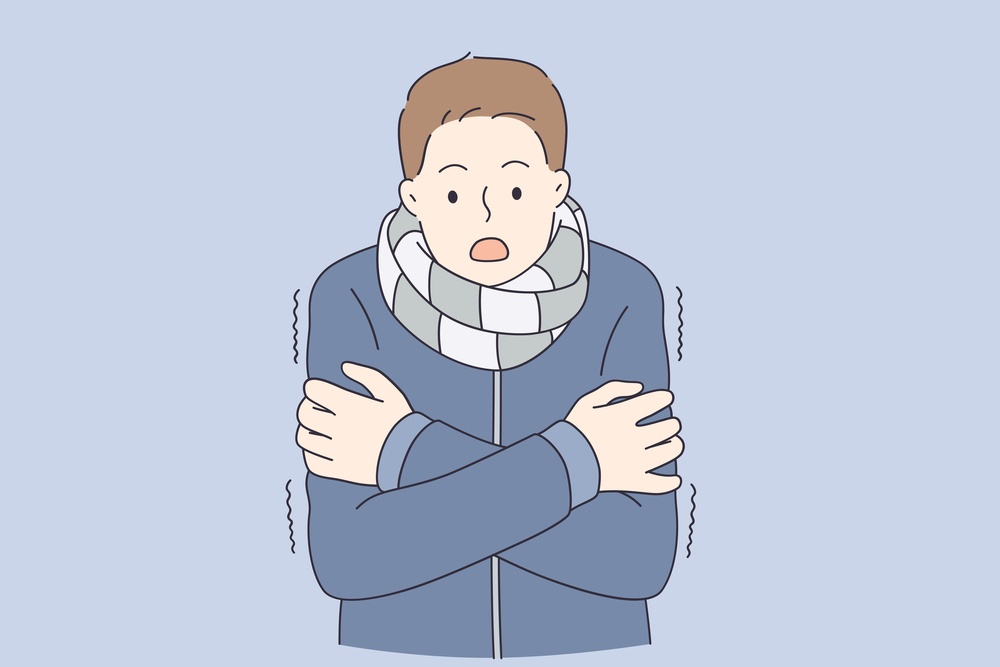Felsőfok (C1)
Finish the sentences with information from the interview.

Why Do Some People Feel Hotter or Colder Than Others?
1. In offices and homes there are familiar debates about ……… .
2. The main regulator of body temperature is ………. .
3. We feel hotter when ………. .
4. The differences in how we experience the same temperature are also caused by …….. .
5-7. Women tend to feel cold more often than men because ……… and because ………. and also because ………. .
8. Older people feel cold more often because ……… .
9. No wonder, arguments about temperature settings are so frequent as ………. .
Transcript:
Why Do Some People Feel Hotter or Colder Than Others?
Host: When people’s temperature preferences are wildly different, it affects their social interactions — at workplaces, house parties, or even in the bedrooms we share with partners. Fierce debates about air conditioner and thermostat settings in offices and homes are familiar. This afternoon we talk to Michael Davidson, PhD, a clinical neuropsychologist, and an expert on the issue. If everyone’s body temperature stays somewhere around 37 degrees Celsius, why do we feel temperatures so differently?
MD: Well, the circulatory system is the main regulator of body temperature. So, anything that interferes with circulation can influence to what extent we feel hot or cold when others don’t.
H: So, what specific factors can influence our perceptions of temperature?
MD: If you’re stressed, your autonomic nervous system kicks in, causing blood to move toward your body’s core organs, making you feel hotter. Consuming spicy foods, caffeine, and alcohol can also raise our heart rates, making us feel hot and sweaty.
H: What about the differences in our physical makeup? I would suppose they also play a role here.
MD: Yes, certainly. Our diverse body shapes and sizes are also responsible for differences in how we experience the same temperature. If something is bigger and you’re waiting for it to cool down, it will take longer to cool down because the heat sink is larger.
H: Women tend to feel cold more often than men. Why is that?
MD: Women typically have less muscle mass and evaporate less heat through the pores in their skin, making them feel colder than men in a room with the same air temperature. Research also suggests women’s body temperatures are often higher than men’s, and when one’s body is warm, colder air feels even cooler.
H: Older people also complain of feeling cold more often.
MD: Well, there is a reason for that, too. Even when bodies are the same size, the amount of body fat inside can vary and affect how cold or hot we feel in comparison to others. The greater the amount of body fat, the warmer one feels. Older people often might feel colder than younger people, as the fat layer under the skin that conserves heat becomes thinner with age. Similarly, people who have inadequate body fat, for instance, due to an illness like anorexia, may also feel colder than people with sufficient or excess fat stores.
H: Are there other factors that play a role here?
MD: Oh yes. A lot of them, indeed. For instance, anything that affects our metabolism — the process of converting food to energy — also affects our perception of temperature. Often, women have a lower metabolic rate than men, which means their bodies produce less heat, making them feel colder.
H: I see. So actually, with so many factors influencing our perception of temperatures, it’s no wonder we find ourselves arguing so often on the temperature settings of air conditioners and thermostats.
Key:
Why Do Some People Feel Hotter or Colder Than Others?
- air conditioner and thermostat settings
- the circulatory system
- we are stressed and when we consume spicy foods, caffeine, and alcohol
- diverse body shapes and sizes
- (typically) they have less muscle mass and evaporate less heat
- their body temperatures are often higher
- they have a lower metabolic rate than men / their bodies produce less heat
- the fat layer under the skin that conserves heat becomes thinner with age
- so many factors influence our perception of temperatures





